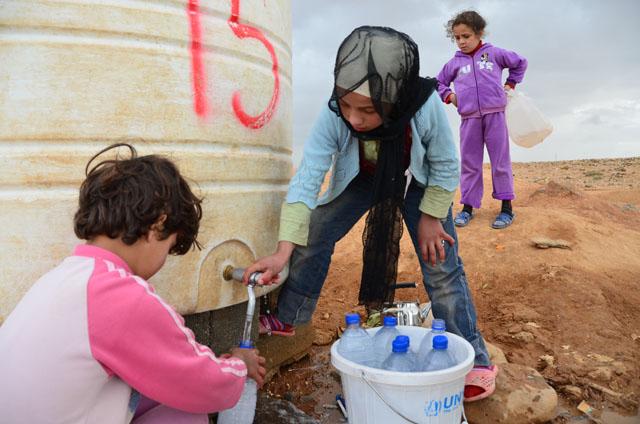AMMAN — The country’s water sector needs $750 million during the next three years to meet the rising demand for water, aggravated by an ongoing influx of Syrian refugees, a senior government official said on Tuesday.
The Ministry of Water and Irrigation has formulated a “support plan” that proposes new water infrastructure projects to be implemented in case Syrians continue to take refuge in the Kingdom over the next few years, Water Minister Hazem Nasser told reporters at a press conference.
“The ministry has submitted its ‘support plan’ to international aid institutions to seek funding… if the funds are insufficient, the ministry will be forced to reduce its role and presence,” Nasser said, referring to water services provided to the refugees.
The minister highlighted that Syrian refugees’ direct and indirect cost on the water sector is estimated at $358 million per year.
“Water demand rose by 20 per cent due to hosting hundreds of thousands of Syrian refugees… we are operating the Disi Water Conveyance Project at 92 per cent of its capacity, which is a figure we planned to reach in three to four years,” he noted.
Nasser underscored that hosting thousands of Syrian refugees “ruined” the ministry’s strategies and plans, which were replaced by “emergency plans” formulated every summer.
During the past year, the water sector received $107 million in grants to sustain services in communities hosting Syrian refugees, particularly in the northern region, Nasser said.
The minister on Tuesday signed agreements worth 10 million euros for implementing water development projects in the northern governorates, where water resources are scarce.
Under the agreements, funded by the German Development Bank, new water wells will be drilled and existing ones will be rehabilitated in the northern and northeastern badia, according to Nasser.
In addition, the authorities will extend pipelines, conveyors and wastewater networks and purchase pump equipment.
The northern region suffers from an acute water shortage caused by limited resources, violations to main water lines and deteriorating networks, while the situation has worsened with the influx of Syrian refugees, according to ministry officials.
Over 70 per cent of the Syrian refugees in Jordan live amongst host communities, while the rest are accommodated at the Zaatari Refugee Camp in Mafraq Governorate and the Mreijeb Al Fhoud Camp in Zarqa Governorate.













